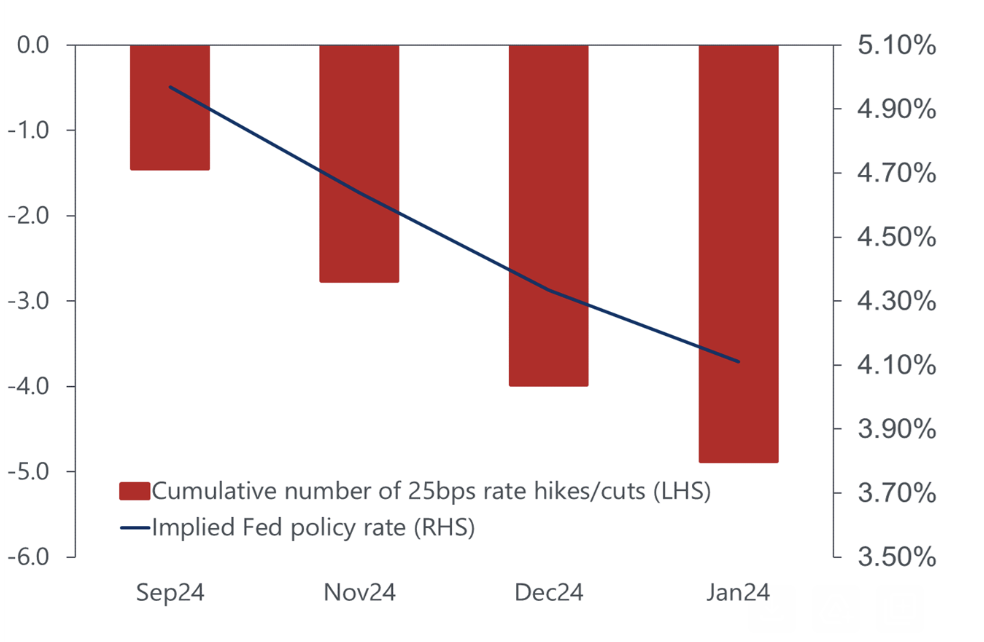Markets are eyeing upcoming readings on inflation and the consumer following a volatile run last week, spurred by a disappointing jobs report that showed bad news is, well, bad news again.
“Since the release of the July employment report, financial markets have been focused on the labor market and the implications for Federal Reserve policy, but the other side of the central bank’s dual mandate will come back into view during the week ahead,” Oxford Economics lead economist Nancy Vanden Houten wrote in a note to clients on Friday.
The July Consumer Price Index (CPI) will serve as the next big test for inflation (and for markets).
“We expect the July CPI to be a touch less friendly than the weaker-than-expected June readings, but don’t think the data will shake the Fed’s confidence that inflation is moving in the right direction,” Vanden Houten said.
According to Bloomberg consensus estimates, headline inflation, which includes the price of food and energy, is expected to post an annual gain of 3%, unchanged from June’s reading. But the metric is set to rise 0.2% month over month after declining 0.1% in June.
On a “core” basis, which strips out the more volatile costs of food and energy, inflation is expected to tick up 3.2% year over year, a deceleration from the 3.3% increase seen in June. Monthly core prices are expected to have risen 0.2% compared to a 0.1% increase in June.
As of Monday, markets were pricing in a roughly 52% chance the Federal Reserve cuts interest rates by 50 basis points by the end of its September meeting, down from a 85% a week prior, per the CME Fedwatch Tool.
“In our view, financial markets overreacted to the latest batch of employment statistics, pricing in a 50 basis point (bp) rate cut for September, and more than 100bps in cuts for the year,” Vanden Houten wrote.
“Over the course of the week, markets scaled back expectations, although they continue to anticipate more than 50bps in cuts than we expect for the year. We acknowledge an increased risk of a more aggressive pace of policy normalization if future employment reports are weaker than expected, but we are comfortable with our baseline forecast.”
EMEA Tribune is not involved in this news article, it is taken from our partners and or from the News Agencies. Copyright and Credit go to the News Agencies, email news@emeatribune.com Follow our WhatsApp verified Channel





